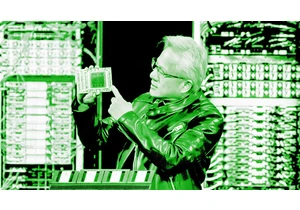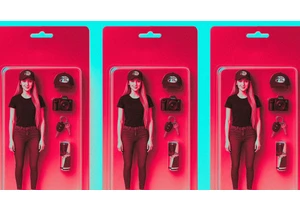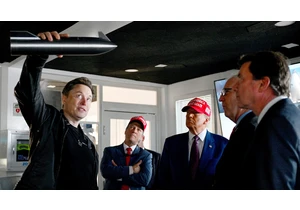I love my job, but it comes with an unsettling occupational hazard: editing stories about technologies that threaten my own professional existence.
Such was the experience of working on senior editor Mark Sullivan’s story on Perplexity, one of the buzziest startups in Silicon Valley. Perplexity makes an AI search tool that yields impressively detailed and well-organized answers. It’s popular with tech-world insiders and is catching on with normies, too. The company is a David to Google’s Goliath, although its CEO, an OpenAI veteran named Aravind Srinivas, likes to say, “We don’t have to beat Google to be successful.” Yet as Perplexity grows, it will imperil an altogether different entity: the media business.
Unlike traditional search engines such as Google, which index the world’s information in the form of links and send users to the sources of that information, Perplexity delivers comprehensive answers right there in the app (or web portal). Sure, the sources are attributed and clickable, which Srinivas often points out. But c’mon, how many users are really going to keep clicking through when Perplexity’s AI has done such a good job summarizing the content? I’m a journalist with a vested interest in supporting the outlets that feed Perplexity’s engine, and even I find myself mostly satisfied with the app’s results.
It’s a strange position to be in—awed by a product that could put you out of business. But then I remember something crucial: These AI systems are fed only on information that already exists. They can’t break news or identify visionary solutions being generated in real time (by people) to address the planet’s toughest problems. That’s the focus of our annual World-Changing Ideas package, which never fails to inspire me.
When you read about, say, Kind Designs’ 3D printed sea walls, which protect Miami from rising tides while imitating the mangroves of the city’s coastline, shielding small creatures from predators, you can’t help feeling that everything’s going to work out fine. Congratulations to all 177 World-Changing Ideas honorees and to senior editors Aimee Rawlins and Jay Woodruff and deputy editor Morgan Clendaniel for assembling this package of pure hope.
Speaking of hope: Nike has plenty of it heading into the Summer Olympics, even as the shoe giant has lost a step in recent quarters. Few writers can match global design editor Mark Wilson’s passion for the sneaker business. In this issue’s cover story—fronted by Sunny Choi, a swoosh-sponsored member of the first U.S. Olympic breakdancing team—Wilson takes us inside Nike to show us how the brand has been training for its own Olympic moment. His story has the kind of nuance and style that no machine can match. Not now, not ever.
Inicia sesión para agregar comentarios
Otros mensajes en este grupo.

Welcome to AI Decoded, Fast Company’s weekly newsletter that breaks down the most important news in the world of AI. You can sign up to receive this newsletter ever


Elon Musk’s SpaceX and two partners have emerged as frontrunners to win a crucial part of President Donald Trump’s “Golde

A new watchdog report uncovers Facebook groups quietly fueling a black market fo

A software application called Interview Coder promises to help software developers succeed at technical job interviews—by surreptitiously feeding them

Amid tariff whiplash and the rejuggling of global trade, GE Vernova’s CEO Scott Strazik is finding a way to stay “relentlessly optimistic.” Strazik returns to the Rapid Response podcast to share h

Tesla‘s electric-vehicle registrations in California dropped 15.1% during the first quarter, industry data showed, signaling an
